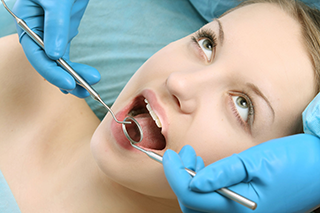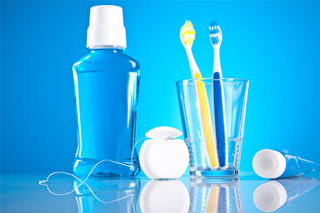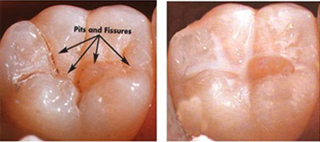Preventive Dentistry
Prevent, Rather than CurePreventive Dentistry
Preventive dentistry is the practice of caring for one's teeth to keep them healthy. This helps to avoid
cavities, gum diseases, enamel wear and more.
Gingivitis
Brush daily to keep the teeth clean and strong.
Brush teeth daily with flouridated toothpaste.
Replace the toothbrush three to four times a year or as the bristles start to fray.
Daily flossing is also recommended. Flossing helps to clean the tight spaces between the teeth.
Eat a balanced diet. It helps to protect the teeth by providing them with the nutrients they need.

Special care – for children :
Children should be taught proper oral hygiene at an early age.
Primary and young permanent molar teeth are susceptible to decay, particularly on their chewing
surfaces.Young permanent molar teeth, soon after their eruption, are still immature and take several
months to mature completely.This time period is very critical and teeth should be protected from decay during this period.
Annual dental check up and dental scaling allow dentists to identify tooth problems and take care
of them right away.

Pit and Fissure Sealant
Fluoride, even though it prevents decay by strengthening the enamel, cannot prevent decay on the chewing surface of the molar teeth by the same mechanism. Hence a specially available cement called 'pit and fissure sealants' can be used to cover and seal those risky, deep chewing surfaces of molars. This will prevent entrapment of food particles in them and thereby prevent tooth decay. These 'pit and fissure sealants' don't need a tooth drill before its placement. It is a very simple procedure to perform and has great preventive benefit.

Do's
Brush with fluoridated toothpastes and gels which reverse early stages of tooth decay.
Choose a toothbrush that is appropriately sized. Bristles that are too hard can injure your gums
and cause tooth damage.Brush for 2 minutes. A motorized toothbrush with a timer can be a great choice; 30 seconds
per mouth section of brushing will be sufficient.Brush after each meal rinse with mouthwash to wash away food particles.
Replace your toothbrush every 3 months.
Brush your tongue once a day with a toothbrush or tongue scraper.
Keep toothbrush heads dry after use.
Dont's
Don't share toothbrushes with anyone. Germs and gum diseases can be spread via moist tooth brushes.
Don't use a hard-bristled brush.
Don’t use excessive force.
Keep regular appointments with your dentist. The best preventive method.
Don't forget to schedule regular checkups with your dentist. Annual professional cleaning and
examination are the easiest way to avoid painful and costly dental problems in the future.


